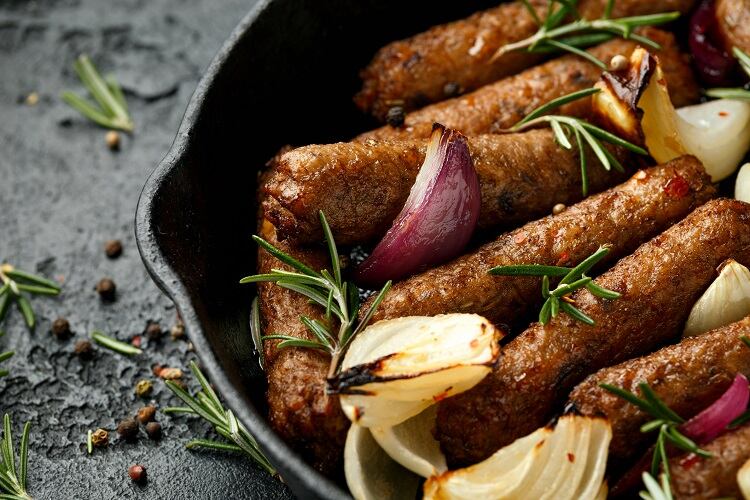Meat- and dairy-free advocates are celebrating the decision, which will see parts of their court case against a ban on ‘meaty’ names for plant-based foods be transferred to the supreme court of EU law.
The background
Back in 2020, France took the decision to ban the use of ‘meaty’ names for plant-based foods, with the exception of ‘burger’. Such a ban would see product names such as vegetarian sausages, or plant-based steak, outlawed.
According to France’s decree, published just last year, the use of ‘sector-specific’ terminology traditionally associated with meat and fish to designate products that ‘do not belong to the animal world’ and which, in essence, are ‘not comparable’, would be prohibited.
The goal, according to officials, is to avoid consumer confusion.
The proposed ban was considered controversial amongst the plant-based community. Meat- and dairy-free advocates the European Vegetarian Union (EVU) and the Association Végetarienne de France (AVF) filed a complaint against the law.
Members of France’s meat industry (France is the largest beef producer in the EU), welcomed the decree, describing it as ‘a major step forward in terms of the transparency of information’ provided to consumers.
Now EVU and AVF are celebrating, noting that the France’s Council of State (Conseil d’Etat) has decided to transfer parts of the court case to the European Court of Justice (ECJ).
What is the ECJ being asked?
The ECJ has been asked to provide answers to questions raised by the France’s Council of State concerning food labelling, consumer transparency, and Member State authority.
The court will specifically need to clarify whether Member States have the right to introduce their own additional laws, such as the one France introduced, or whether EU-level harmonisation prevents them from doing so.
If Member States are allowed to introduce such laws, the ECJ has been asked to explain whether the French Decree as it currently stands is proportionate in achieving its goal of providing consumer transparency.
“We welcome the decision of the Conseil d’Etat to seek clarity from the European court of Justice on food labelling,” said Élodie Blanchard, president of the AVF. “We find ourselves standing at a pivotal moment, not only for France but for the entire EU.
“It is a litmus test for the rights of consumers who seek more sustainability and conscious choices and therefore for the true commitment towards transitioning to sustainable food system.”
The trend of ‘meaty’ denomination bans for plant-based alternatives
France joins a growing number of countries around the world implementing bans on either ‘meaty’ or ‘dairy-like’ terms for plant-based versions of animal-based foods.
Back in 2017, the ECJ implemented a ban on the use of dairy names such as ‘milk’, ‘butter’, ‘cheese’, and ‘yogurt’ for purely plant-based products, with the exception of coconut milk, peanut butter, almond milk and ice cream. Three years later, the European Parliament voted against a ban on ‘meaty’ terminology for plant-based alternatives such as ‘burger’, ‘sausage’ or ‘steak’.
South Africa has also banned ‘meaty’ denominations being used on vegan products, and Turkish legislation now states that the term ‘cheese’ cannot be used to describe dairy-free alternatives. Last year, the Turkish government also banned the production of vegan cheese alternatives.




